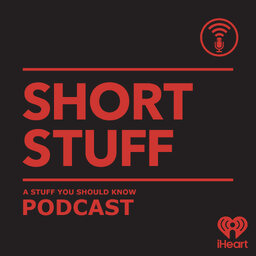Why do leaves change colors in the fall?
Ah, autumn - arguably the most beautiful time of the year, thanks to the vibrant colors trees put on display as they close up for the winter. Ever wonder why and how trees change color in the fall? Chuck and Josh have it down pat and explain it here.
Learn more about your ad-choices at https://www.iheartpodcastnetwork.com
 Stuff You Should Know
Stuff You Should Know


